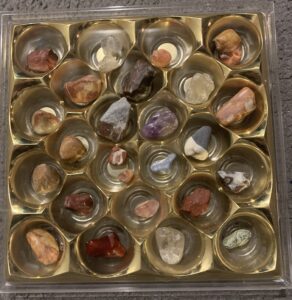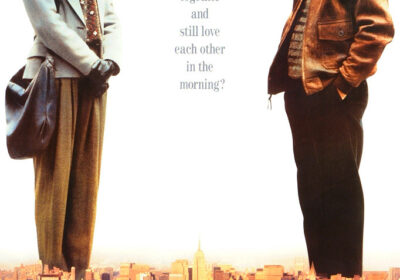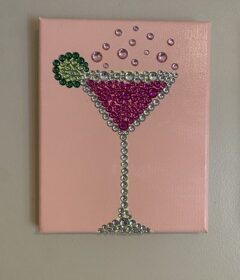How individuals find joy in a world of chaos

An empty Ferrero Rocher Hazelnut Chocolates container sits on the top shelf of her closet, each divot a hideaway for each of the penthouse rocks.
These rocks are special and get to retreat in their individual specimen holders. More rocks line the windowsill, looking out beyond the world below. The boxes under her bed contain a small portion of the earth, collected from streams, mountains, and parking lots.
Why does she enjoy rocks so much?
“I think they’re what’s in my brain,” VTSU Castleton junior, Courtney Gomes said with a look of charm.
Pebbles and boulders tumbling back and forth until they have smoothed out ideas she feels comfortable sharing with the world. Stata of each era of her life, stacked on one another, memories of the person she used to be. Minerals streaking the edges and glacial gloss, each building up her optimism, pessimism and convoluted moments.
The uniqueness of the rocks make up how different each thought is, somehow all from the same person.
Sometimes it’s important to balance being present within reality and relaxing away from everything else.
An empty mug of tea stares up at the ceiling, depleted from the meeting he had just minutes prior. Student art pieces clutter his walls. A glass dish of black jellybeans is a tasty decoration ornamenting the front of his desk.
Professor Greg Engel finds he enjoys “mentally inhabiting other worlds,” specifically by consuming sci-fi or fantasy via reading or video games.
Mentally inhabiting other worlds gives him dopamine and a way to escape to something more relaxing.
The world is full of many unpredictable things. The future is uncertain. There could be natural disasters. There could be unexpected political outcomes. There could be a change of plans. And yet, “riding the chaos is entertaining,” Engel said.
He goes on to state that just because something is unexpected does not mean it is bad.
There is havoc in the universe, and we are amid it.
“Sometimes you should just go with the flow,” states VTSU Castleton sophomore, CJ Dodge, when asked about how they find joy in a world of chaos.
Formless chatter echoes onto clanging plates and forks and the dishes students place on the conveyor belt. Smells of different foods waft about the air. A chair scratches the linoleum beneath as someone scooches out of their seat.
Dodge states that to go with the flow, you should “find the things you care about and stick to it.”
For them, this means making music, their passion. It also means hanging out with good friends, as talking to people can be very helpful.
When asked what advice they have for people who struggle with happiness, they quipped, “If I had advice, I would use it.”
Though Dodge did bring up the importance of journaling and how helpful writing things out can be.
The world is full of everything, yet it is the details that are prettiest. Happiness is the little trinket you find on the side of the sidewalk that a crow may have dropped from its beak. Happiness is hearing someone hum a tune that’s been stuck in their head all day. Happiness is getting to pee after a long road trip. Happiness is waking up from a nice dream.
For River Capell, happiness means putting on headphones and locking themself in their room because “in order to exist in a crazy place, you have to become calm to go out.”
Doing so allows them to reset. They also enjoy “making shit,” especially if doing so means making an art piece to give to someone else. But most of all, Capell likes to go outside and feel the sun on their skin and find one thing that makes them smile. They say if you do this, something good will appear in your life that you will continue to look forward to.
The number of good things you can find in the world can change depending on your perception of it. Life can alter and move about just like our emotions that come along for the ride.
Kailey Abbott-Bishop grew up with a mom who collected fortune cookie wrappers. She had the stars in her wallet. One fortune sticks out. She looks away as she recalls the phrasing of this fortune, words that have impacted her very belief system. She looks at the reporter and says, “It doesn’t matter who is without a flaw. You have to remember life will ebb and flow like the tides. Some days you yourself are not good, but you are able to find the good that the world presents, while other days you are unable to find the good of the world and you have to allow yourself to be positive.”
She fidgets with her ring as she speaks.
Abbott-Bishop holds the metal ring in her hand like something she birthed, a belief carved into something she wears every day. When she flips the ring over in front of the reporter, she says how there are waves, whether you look at the ring upside down or the other way. She says she got it at some store somewhere. It caught her eye, but it didn’t mean anything when she bought it. It was simply waves, similar to the ring her parents have, always holding the ocean in their hands. She says she wasn’t okay for so long that she found meaning in the waves in her ring, the fortune playing a larger role in her life than words inside a cookie typically do.
Finding meaning within the tossing and turning of tides, finding destinations among the meandering, going with the flow, or focusing on the fleeting moments are important in a world hard to grasp at times. Sometimes you should stop to ponder: What in my daily life brings me joy? Grab that thing and fill your life with it. You might enjoy the unexpected things that can come of it.
(If you are genuinely struggling to find happiness in your daily life, seeking professional help is beneficial if you are able to do so.)








